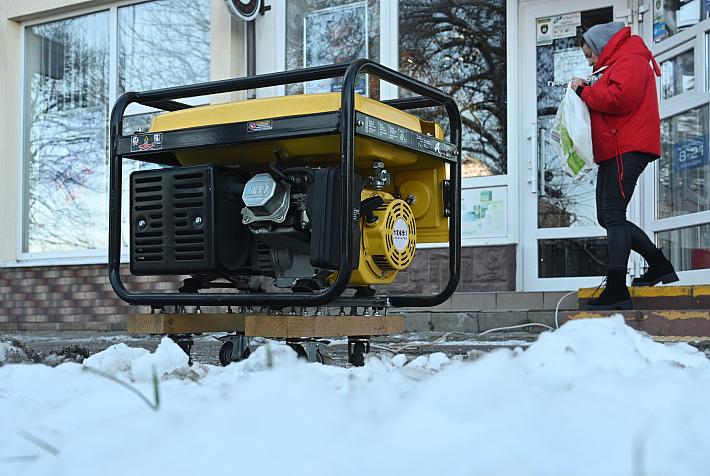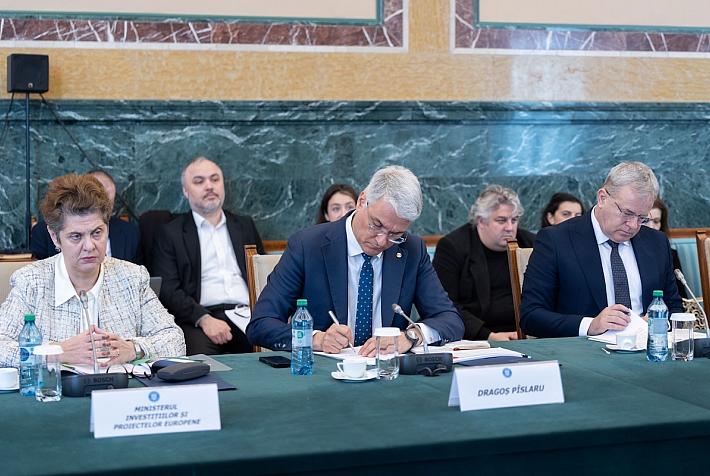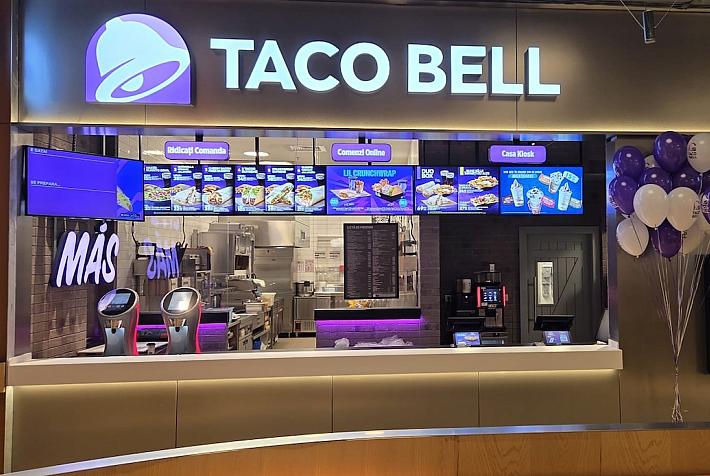The 2020 goal: Leslie Hawke on giving underprivileged children access to early education, leaving Romania, and the country’s hidden resource
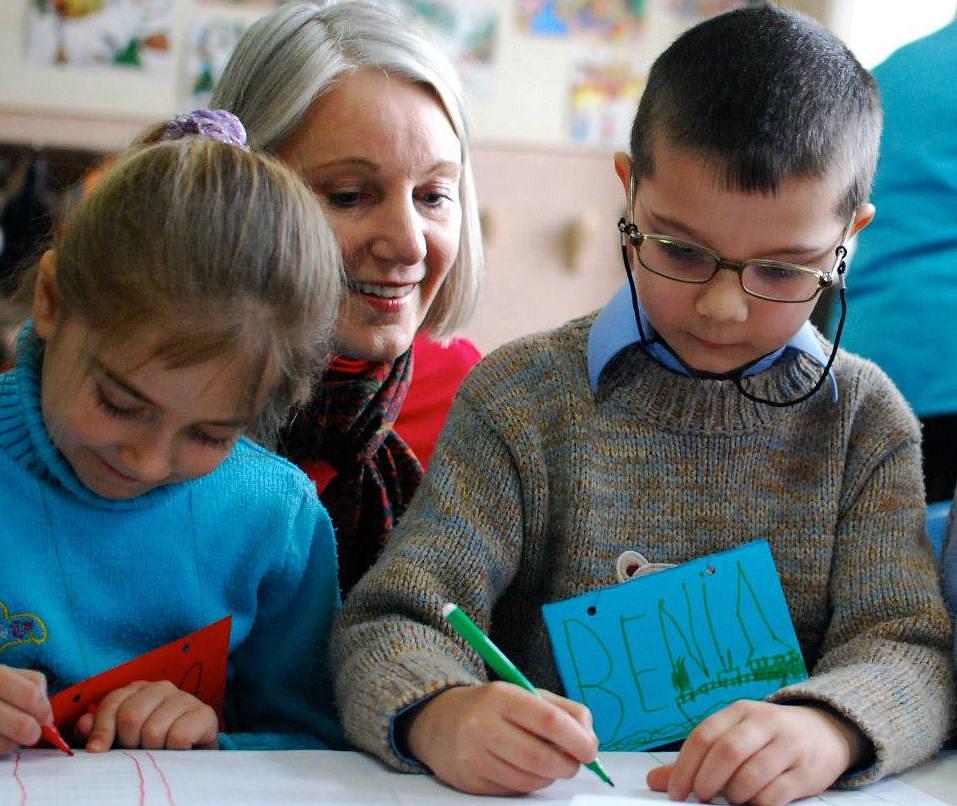
Throughout the twenty years she spent in Romania, Leslie Hawke has worked to help underprivileged children get the chance of early education. In an email interview occasioned by her withdrawal from the daily activity of OvidiuRo and departure from Romania, she looks back on her work in the country, points to Romania's biggest hidden resource, and explains how she plans on helping OvidiuRo's cause further.
Leslie Hawke arrived in Romania in 2000, as a Peace Corps volunteer and spent the first four years in Bacău, a city in eastern Romania's Moldavia region. In 2001, she teamed up with Maria Gheorghiu for the Gata, Dispus și Capabil initiative, providing education for underprivileged children and job training for mothers. In 2004, the two founded Asociația OvidiuRo and expanded their work to Bucharest's District 5. In 2006, they launched the Fiecare Copil în Școală (Every Child in School) initiative, aimed at keeping high-risk children in school.
By 2010, early education became the focus, and the Fiecare Copil în Grădiniță (Every Child in Kindergarten - FCG) program was launched, incentivizing poor parents to send their kids to preschool and kindergarten. Five years later, in 2015, the program reached children in 12 counties, and OvidiuRo signed an agreement with the Education and Labor Ministries, paving the way for national expansion of FCG. The same year, the Parliament passed a law (#248/2015) that makes use of the solution implemented by OvidiuRO in the FCG program, offering low-income families food coupons (tichete sociale) to send their children to kindergarten regularly.
Part of the work was raising awareness of the topic, and the NGO rolled out many campaigns benefiting from the support of local celebrities, ambassadors, and the star power of actor Ethan Hawke, Leslie Hawke's son. Along the same line, the Halloween Charity Ball organized by OvidiuRo became one of the best-known charity events in Romania.
Today, OvidiuRo works as an Agency for Early Education, focusing entirely on the preschool years. It works to make the children's time in kindergarten educational and interactive, training teachers, provide quality resources, and help develop a network of early education specialists.
Hawke and Gheorghiu started from the very beginning with a generational focus in mind, thinking a period of some twenty years was needed for their work to have a lasting impact. After seeing how hard it was to make up for the lack of early learning opportunities, the program focused on the kindergarten level, which worked better for children, their parents, and educators. More on what has changed in the meantime, the perceptions about a society's poorest and the bits of Romania Leslie Hawke has taken with her in the U.S. in the interview below.
Why the decision to withdraw from the daily activity of OvidiuRo and leave Romania? What factors played into it?
Maria Gheorghiu and I realized around the time that Romania joined the E.U., that our focus – getting the poorest children into the school system and helping them succeed there, would take at least a generation to have any real, lasting impact. I had arrived in Romania in February of 2000, and Maria and I had started working together a year later – so together, Maria and I made a personal commitment to continue our mission until at least 2020. We said, "We are going to make Fiecare Copil în Școală a national program by 2020 – and then we are both free to do something else if we want to."
A few years later, I wound up marrying an American man who worked in Boston. I was not willing to break my commitment to Maria (and myself), and David wasn't in a position to move to Romania. So I promised him I'd come back permanently in 2020. A lot of factors played into my settling back in North Texas, including my 90-year-old mother, who needed more of my attention, and my four grandchildren, to whom I wanted to be able to pay more attention. The funny thing is, now, with the pandemic, I wouldn't be allowed back in Romania anyway! The timing worked out extraordinarily well in that we found my replacement when I was in Bucharest in early February. Patricia Puschila joined OvidiuRo as COO in May.
OvidiuRo is at a turning point now. We need to grow in order to adequately serve the whole country with what we do best – teacher training and motivation. Patricia is the perfect person to help OvidiuRo do that. She's youthful, energetic, and dynamic, and she has two decades of experience in Romania's corporate and NGO circles. AND, she's fluent in Romanian, which I never managed to be.
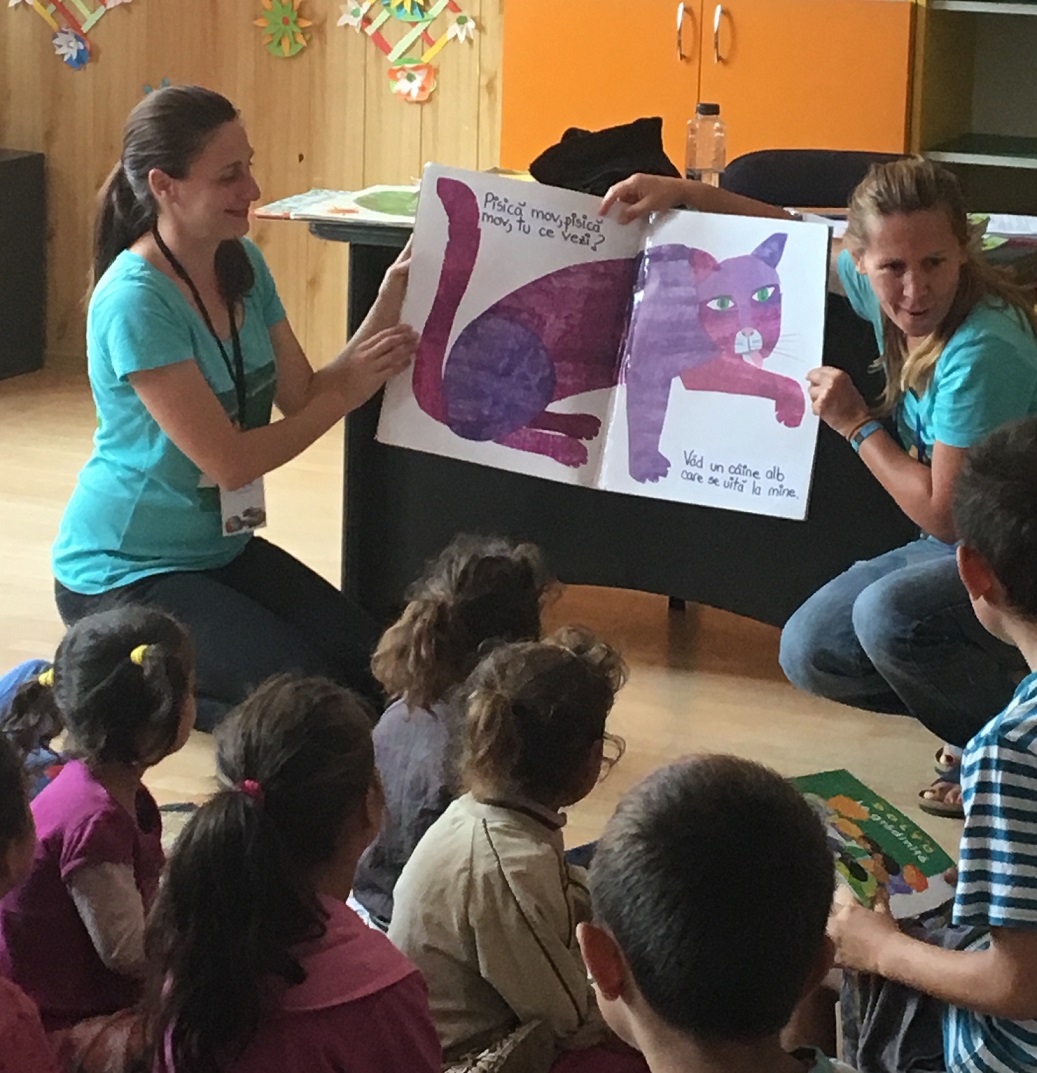
What were some of the main landmarks in the work process to develop the OvidiuRo program and turn it to an Agency for Early Education?
Initially, our goal was to get every child who was not in school, into school. That in itself was complicated, but not all that difficult when we figured out the process. However, over the years, we learned that the later kids started, the poorer their outcomes. After-school programs and tutoring did not make up for the lack of learning opportunities in their early years.
So we started working with younger and younger kids, and eventually limited our focus to grădiniță. Thus, we turned Fiecare Copil în Școală to Fiecare Copil în Grădiniță. And it worked!
It worked in so many ways – the teachers saw that at age 3, all the children were receptive to learning; then the children who had been to grădiniță started primary school at 6, instead of 8; they were easier to teach when they got there, having been to grădiniță; the parents were more comfortable with the school environment; the teachers were more understanding of the parents' perspectives, etc. etc.
After the law took effect, our focus switched to making the grădiniță environment truly educational -- through teacher training, providing quality resources like picture books and basic science experiment materials, and creating a network of early education specialists who work very hard and take pride in their truly important vocation.
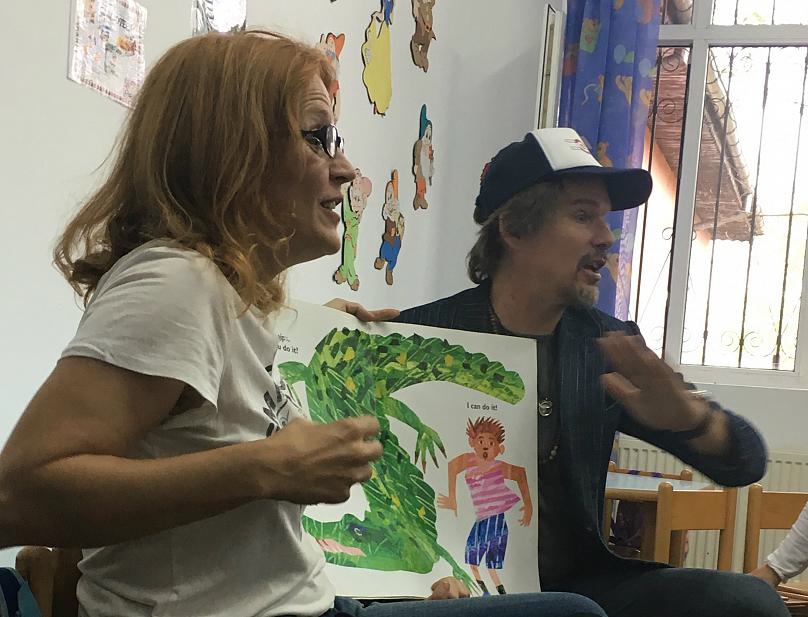
What were some of the most important things you learned from working with teachers in rural areas?
The hardship they often have to go through just to get to the school each day and the lack of resources they have to work with are staggering. And of course, school shutdowns more adversely affect children in poor homes, since their parents lack resources and often have very limited education themselves. OvidiuRo had to abruptly modify its activity plan in March in order to provide teachers with lots and lots of children's books, for both preschoolers and their older siblings, as well as other basic tools like pencils and paper. We've seen some amazingly dedicated teachers "going the extra mile" to work with kids at home and provide learning activities outdoors and door-to-door reading workshops. It's inspiring to see what creative problem-solvers people can be when they genuinely care about their work.
How did the needs of children in rural areas change over the past twenty years in Romania?
In general, the physical appearance of the schools is vastly improved. Most have indoor toilets and central heat. Unfortunately, the materials and workmanship are often very shoddy, and it doesn't take long for the condition of these buildings to deteriorate. It's as if the people in charge of funding and resource allocation don't expect them to last very long.
Improvements in teaching resources and methods lag considerably behind the physical structures, but hopefully, they are being developed more sustainably than the buildings.
Better access to secondary education (that's relevant to real-world jobs) for rural youth is desperately needed throughout Romania.
How has the relationship with the authorities transformed since the early days of OvidiuRo?
Maria has always had an extraordinary ability to work effectively with local authorities – and in Bacău where we started, we generally found decent, well-meaning people who basically wanted to do the right thing. As we grew beyond Bacău, we had the luxury of being able to select the communities we partnered with – and Maria had a knack for identifying the ones who were sincere and hard-working. This stuff is not easy!
How did you find Romania on arrival, how do you find it upon leaving?
In 2000, Romania was already making great strides toward capitalism and its corollary, consumerism. I was initially impressed with how intelligent and generally well-educated the Romanians I met were. The only thing that I found off-putting was their attitudes toward "Gypsies." They made the same complaints that I'd heard growing up in Texas regarding African-Americans – lazy, dirty, dishonest, don't-care-about-education, etc. It was particularly disconcerting to me because in most other ways Romanians were much more sophisticated than the people I grew up around. Why did they have this blind spot when it came to Gypsies?
I've come to understand that most societies are very disparaging of their poorest members. And let's face it, poverty generally brings out the least attractive qualities in people. It is a vicious cycle.
But I have seen a huge change, a sea change really, in terms of how younger Romanians view poverty and racial prejudice from the way their parents view it. People in my own age group would come up to me at cocktail parties and try to convince me that the Gypsies were hopeless, that I was "wasting" my time. Their kids, on the other hand, especially if they had been educated in Western Europe or the U.S., expressed admiration for our work.
OvidiuRo's board of trustees is comprised entirely of young parents in their 30s and early 40s – because they 'get it.'
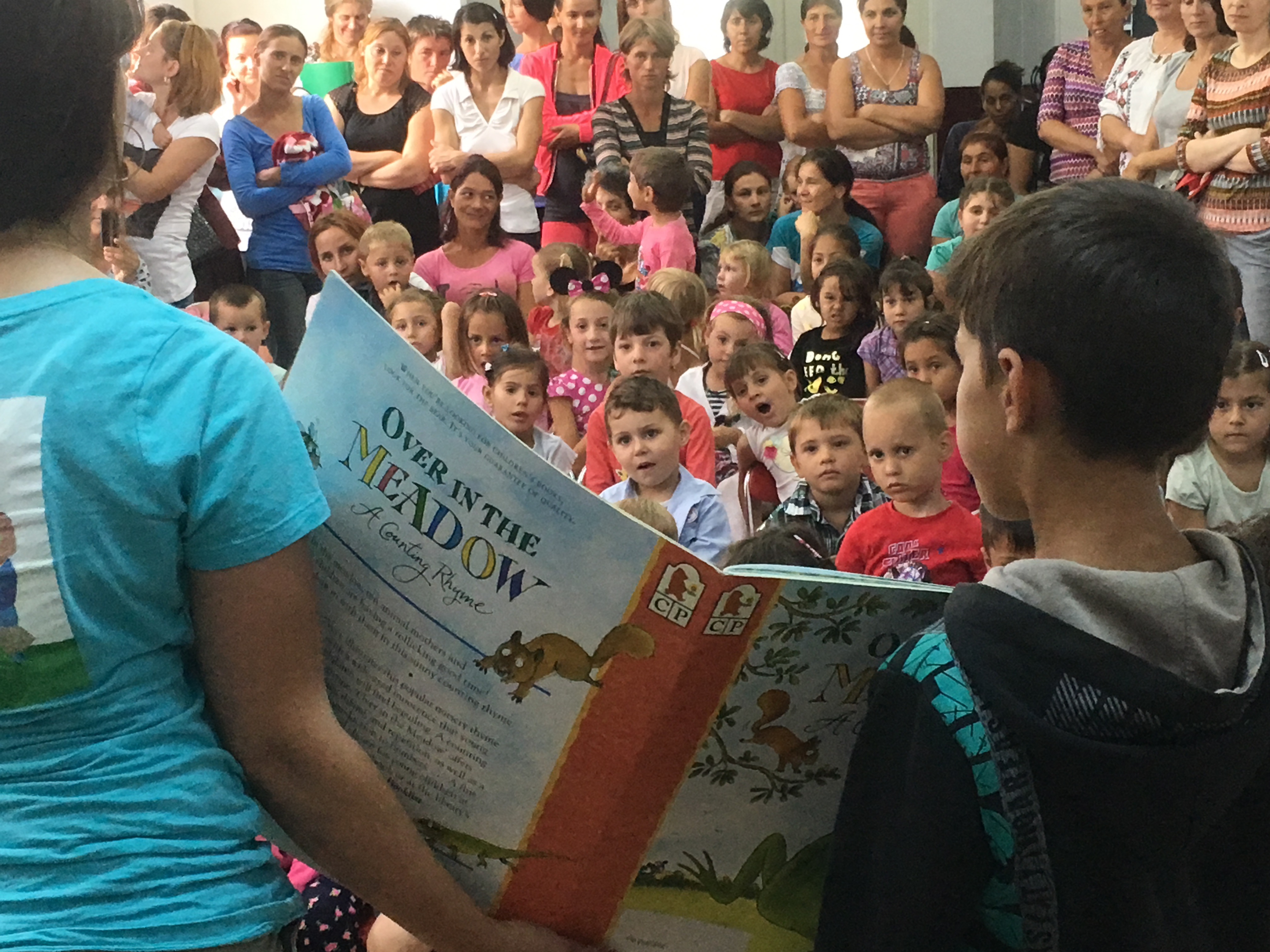
You resided in Bucharest throughout your time in Romania. How has it changed in time? Do you have some favorite spots you might miss?
Actually, I spent the first four years, 2000-2003, based in Bacău. That was a wonderful place to start because it is real Romania. Bucharest is not even a close cousin to real Romania! And foreigners who come here to work, especially in the NGO sector, get a very skewed impression if all they know of Romania is Bucharest!
Romania's biggest hidden resource is its rural population. But it is still largely ignored and neglected. If Romania ever decides to provide a world-class education to the people living in rural Romania, its acceleration will know no bounds.
In my opinion, Bucharest was a lot more interesting about 10-15 years ago. "Europe with an edge" as one expat described it to me early on. Today, it has all the problems of modern city life and little of the edge that made it so fascinating. Of course, I'm glad that the packs of street dogs are gone, and the restaurant options are endless. But the traffic and the noise are very disconcerting. And the great old antique shops in Lipscani have vanished!
My favorite places in Bucharest are my old haunts – the Hilton English Bar, Grano, Cismigiu Park, walking up Calea Victoriei to the Peasant Museum. When I'm in town, Maria is always suggesting new places, and I'm always wanting to go back to the old ones.
Over the past 15 – 20 years, did you notice a change in the perception about Romania?
Unfortunately, Romania still seems to only get publicity for the scandalous stuff. But any time I meet someone who has been to Romania their eyes light up, and they want to talk about what an amazing time they had when they were there. It always seems to have made a positive impression on visitors. And yet, if people have not actually been to Romania, their presumptions tend to be negative.
Where are you based?
I live out in the country, about 80 kilometers west of Dallas, on a sparsely populated ridge that overlooks a small herd of brown cattle (which, thankfully, belongs to somebody else).
Will you continue to work in the U.S.?
I still fundraise for OvidiuRo's initiatives through The Alex Fund, the non-profit organization that I started so my friends back home could donate to FSC, the NGO I worked for as a Peace Corps volunteer in Bacău. Today, most of The Alex Fund donors are young professional Romanian-Americans who want to stay connected to Romania and to support its development. Fortunately, we have good wi-fi – and I spend most of my time at my desk, watching rabbits and roadrunners (AKA chaparral birds) dart across the gravel road. Almost every afternoon, our resident black vulture couple sprinkles off in the birdbath outside my window. However, this is NOT a very friendly eco-system. One always has to be on the lookout for rattlesnakes, tarantulas, and scorpions, not to mention the occasional bobcat and coyote. It's pretty different from Bucharest.
What have you taken from Romania with you?
Oh, so many vivid memories: my screen saver is a rolling collection of all the photos on my computer. Of course, most of them are from Romania, many from the first summer that we did Reading Caravans across the country after the Fiecare Copil în Grădiniță law was passed. The children watch in rapt attention as one of our team reads to them from "Big Books," with the mothers looking on from the back of the room. The kids' faces always make me happy, but the mothers make me sad. So much lost potential due to their lack of educational opportunities – and so much hope for their children to have better chances in life than they have had.
I also never start a meal without saying, "Poftă bună," and my American dog knows the word "gata" because I say it when I give him the last scrap of food from my plate.
(Photos courtesy of Leslie Hawke)
simona@romania-insider.com









